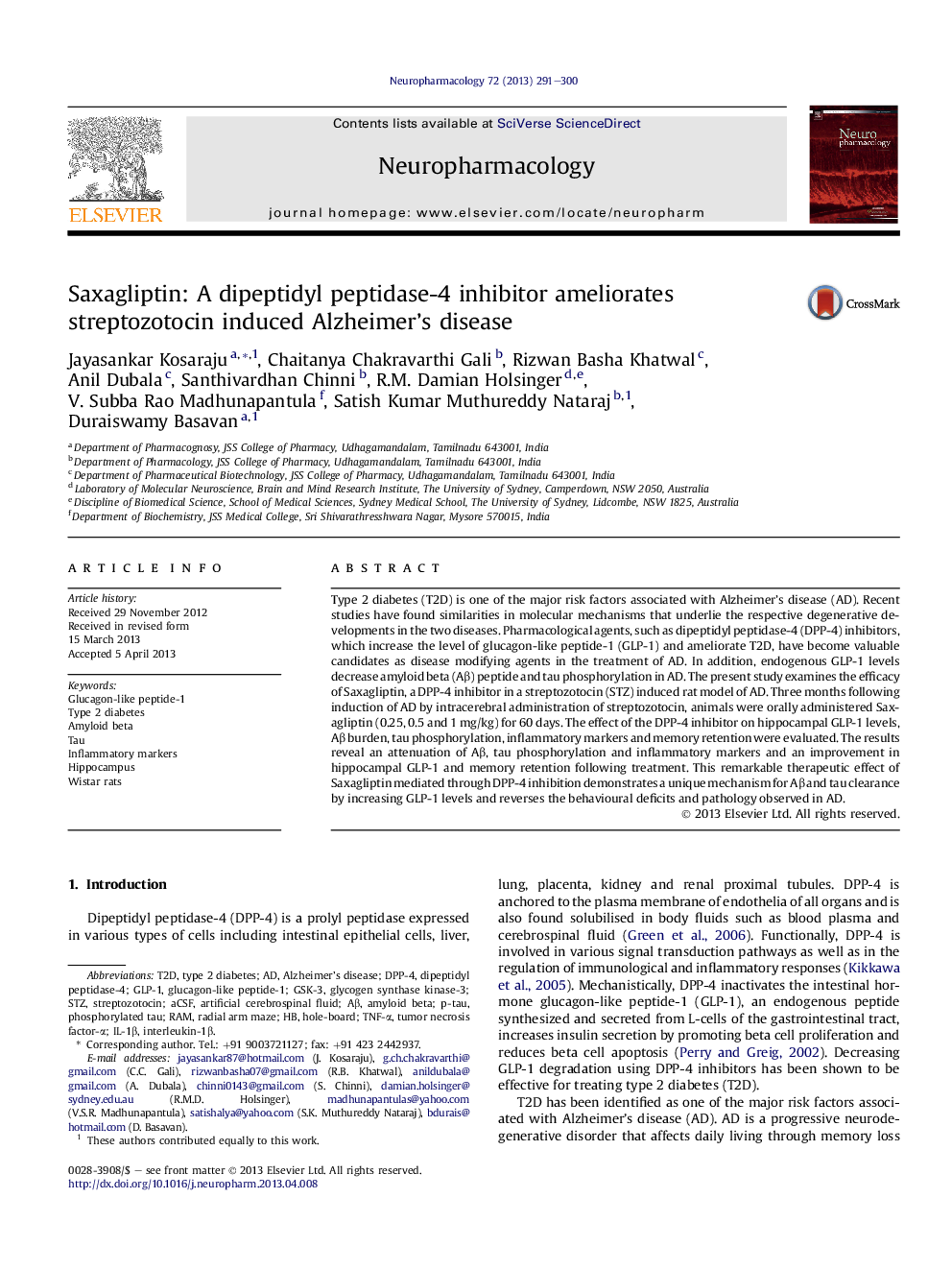| Article ID | Journal | Published Year | Pages | File Type |
|---|---|---|---|---|
| 2493475 | Neuropharmacology | 2013 | 10 Pages |
•We examined the effect of Saxagliptin in a streptozotocin model of Alzheimer's.•Streptozotocin intracerebral injection causes core cognitive deficits.•Streptozotocin injection leads to plaque development and tau hyperphosphorylation.•Saxagliptin treatment decreases amyloid load and tau phosphorylation.•Saxagliptin treatment successfully reverses the cognitive deficits.
Type 2 diabetes (T2D) is one of the major risk factors associated with Alzheimer's disease (AD). Recent studies have found similarities in molecular mechanisms that underlie the respective degenerative developments in the two diseases. Pharmacological agents, such as dipeptidyl peptidase-4 (DPP-4) inhibitors, which increase the level of glucagon-like peptide-1 (GLP-1) and ameliorate T2D, have become valuable candidates as disease modifying agents in the treatment of AD. In addition, endogenous GLP-1 levels decrease amyloid beta (Aβ) peptide and tau phosphorylation in AD. The present study examines the efficacy of Saxagliptin, a DPP-4 inhibitor in a streptozotocin (STZ) induced rat model of AD. Three months following induction of AD by intracerebral administration of streptozotocin, animals were orally administered Saxagliptin (0.25, 0.5 and 1 mg/kg) for 60 days. The effect of the DPP-4 inhibitor on hippocampal GLP-1 levels, Aβ burden, tau phosphorylation, inflammatory markers and memory retention were evaluated. The results reveal an attenuation of Aβ, tau phosphorylation and inflammatory markers and an improvement in hippocampal GLP-1 and memory retention following treatment. This remarkable therapeutic effect of Saxagliptin mediated through DPP-4 inhibition demonstrates a unique mechanism for Aβ and tau clearance by increasing GLP-1 levels and reverses the behavioural deficits and pathology observed in AD.
Graphical abstractFigure optionsDownload full-size imageDownload as PowerPoint slide
